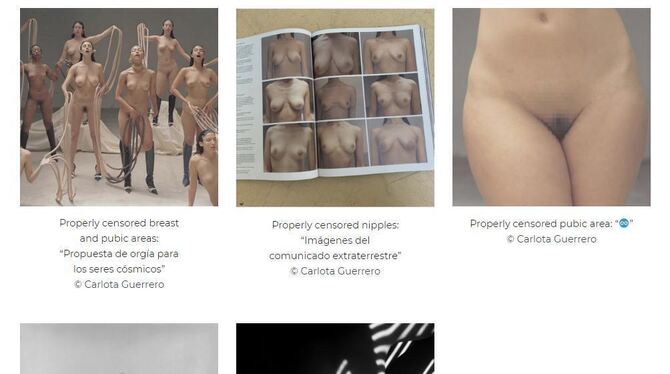REUTLINGEN. Sometimes parts of the internet resemble the cow dung model: Millions of flies can’t be wrong. Oh really? Millions of people use so-called social networks such as Facebook and Instagram, which like to spread the image of limitless open platforms on the internet. In fact, however, these are the shop windows of large, profit-oriented private corporations that can operate and rule without any democratic control – and do so. Censorship is not uncommon on Facebook & Co.
“On Facebook you stay in touch with people and share photos, videos and much more with them,” announced Mark Zuckerberg’s multi-billion dollar company when he welcomed them. If you want to find out what can and can’t be shown on Facebook, you have to put on your reading glasses. In the small print called “Community Standards” there are many amazing things that network connoisseurs rub their eyes at – either in amazement or because they could cry.
This picture could not be shown on the GEA Facebook page: You can learn to make love. Ann-Marlene Henning demonstrates with a pair of models for the educational series “Make Love” how one can have better sex. PHOTO: MDR / Gebrueder beetz film production
–
–
That “hate speech” is not permitted may well be true, but in reality it does not seem to be consistently enforced. It took a certain Donald Trump a full term as American president to get his account banned. But depictions of “nudity and sexual acts by adults” are definitely gone much faster. Everyone who posts on Facebook knows the simple rule of »no nipples«. No, the social network doesn’t like bare nipples at all. Regardless of whether it is a work of art or the cover of an educational book or similar harmless forms. Anyone who posts appropriate representations will get in trouble.
Now it is correct to note that nobody can force a private company to put something in their shop window. That’s true, but given the global importance of Facebook, things look a little different: If you are invisible on Facebook, you practically do not take place in the world of social media. So if your account is blocked, you may have a serious problem.

Sometimes a few veiling pixels or a different perspective are enough for an image to appear acceptable to the censors. Photo: Screenshot from dontdelete.art
–
–
The website documents everything that fell victim to the censorship of Facebook and Instagram, and what consequences this had for the authors https://dontdelete.art from the perspective of artists. Behind it is a coalition of well-known organizations: The National Coalition Against Censorship , the Artists at Risk Connection the American Writers’ Association PEN or the International Arts Rights Advisors.
It goes with dontdelete.art By no means about taste, which is known not to be debatable, but about the effects of censorship. It is not only shown as an example of what was blocked. The organizers of the campaign talked to the authors concerned about their art, whether and how they could defend themselves against the removal of their works, and what was the result. To cut a long story short: most of them saw no way of defending themselves. If so, their appeal was ineffective – and everyone was very concerned about their accounts being blocked.
As a useful addition there dontdelete.art Tips on how the social platforms work, i.e. how you can possibly avoid an automated or curated deletion of your content. As crazy as that may be: Sometimes it is obviously enough to pixelate a little at this or that point or simply to choose a different section. (GEA)
– .

